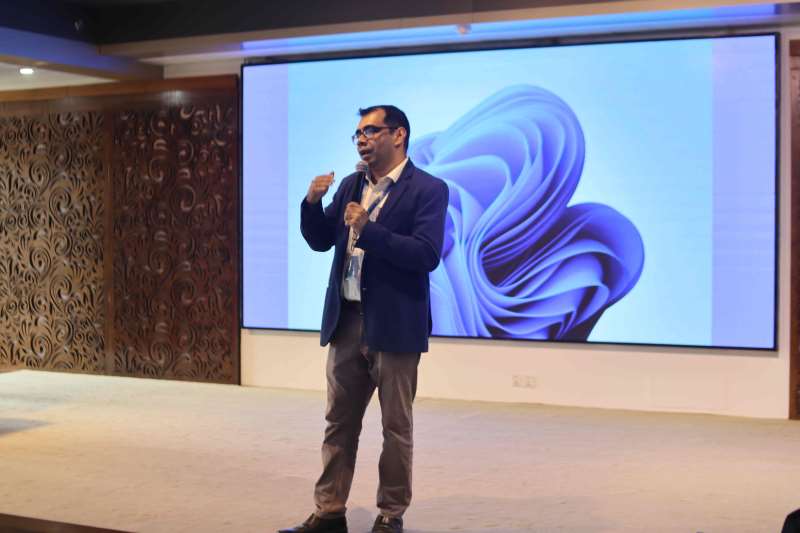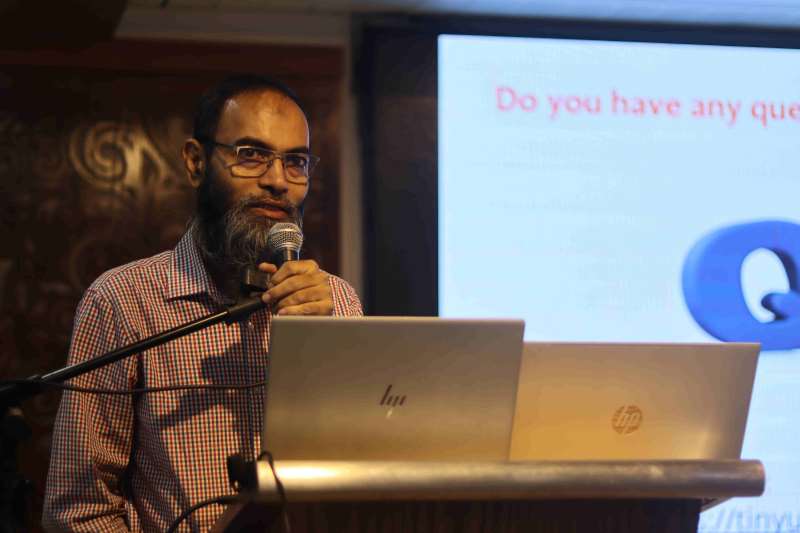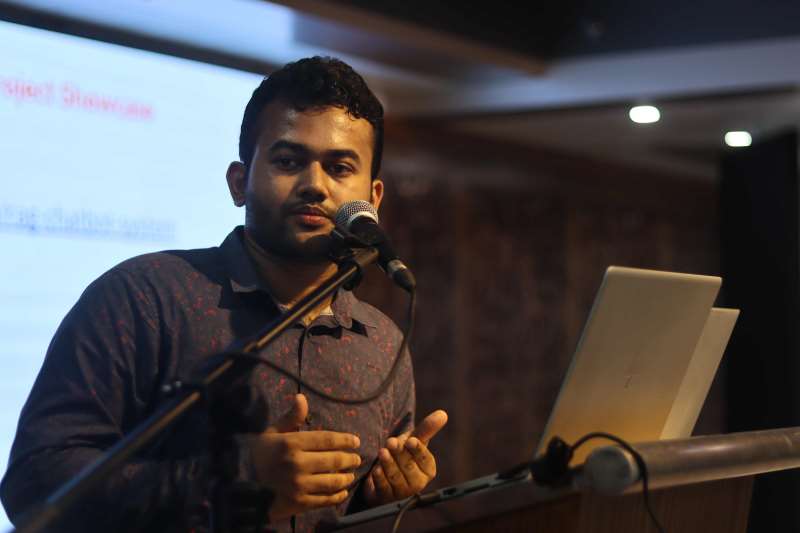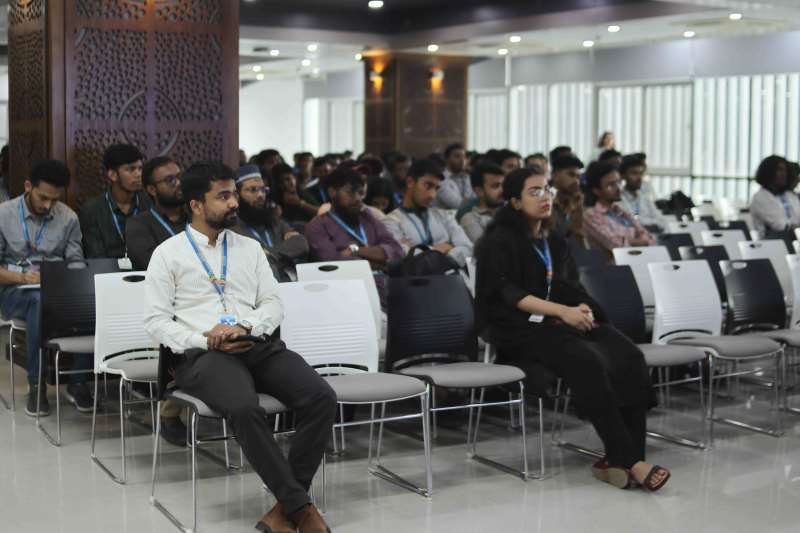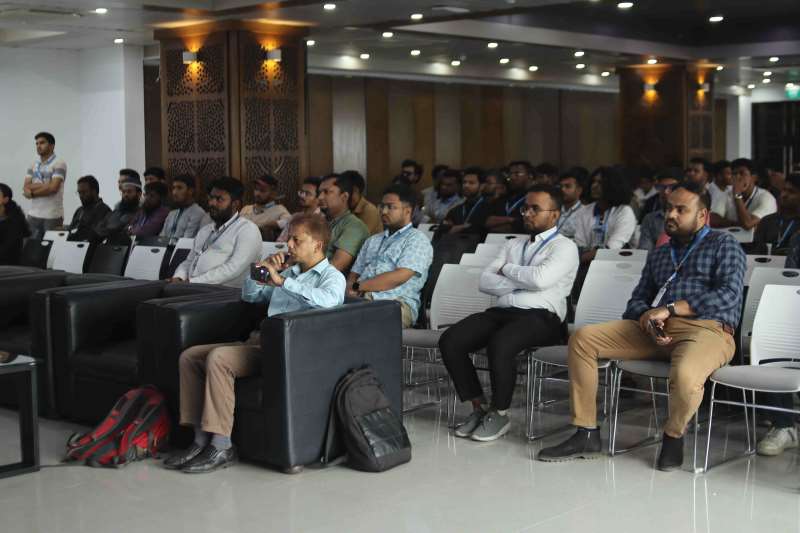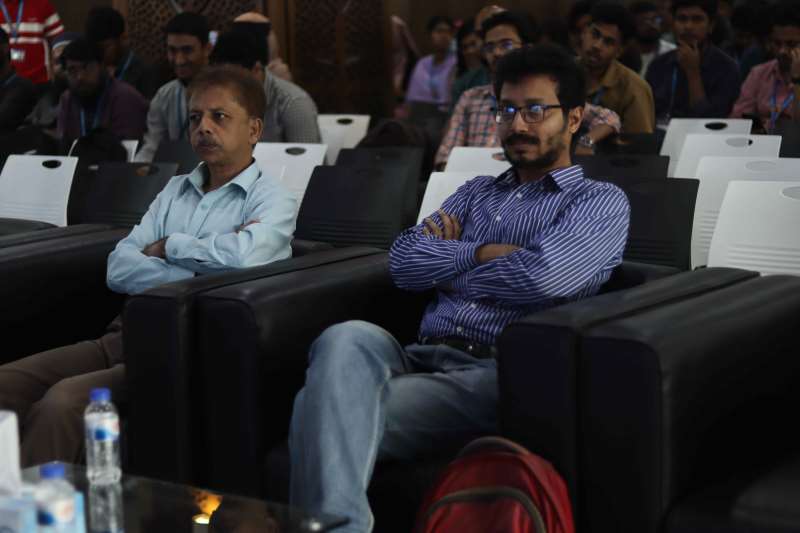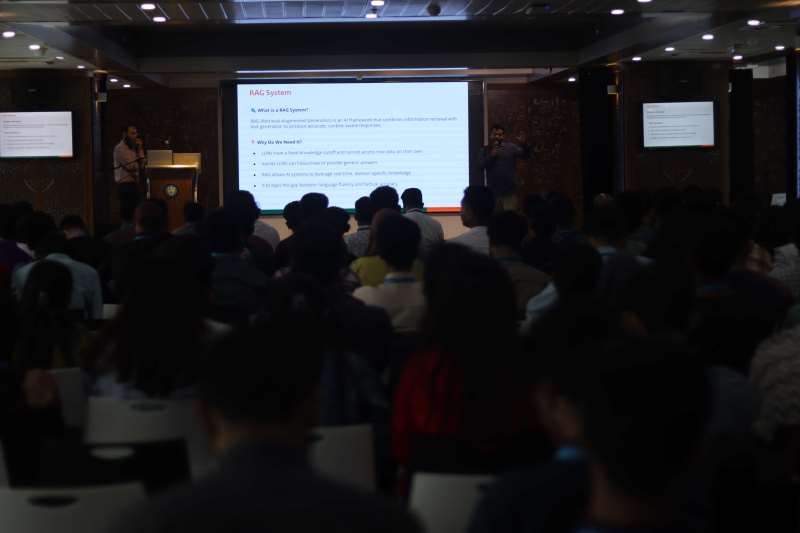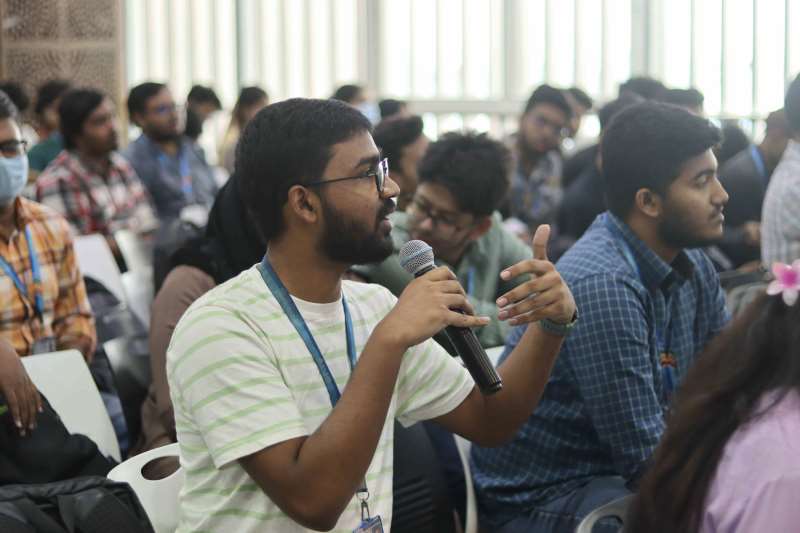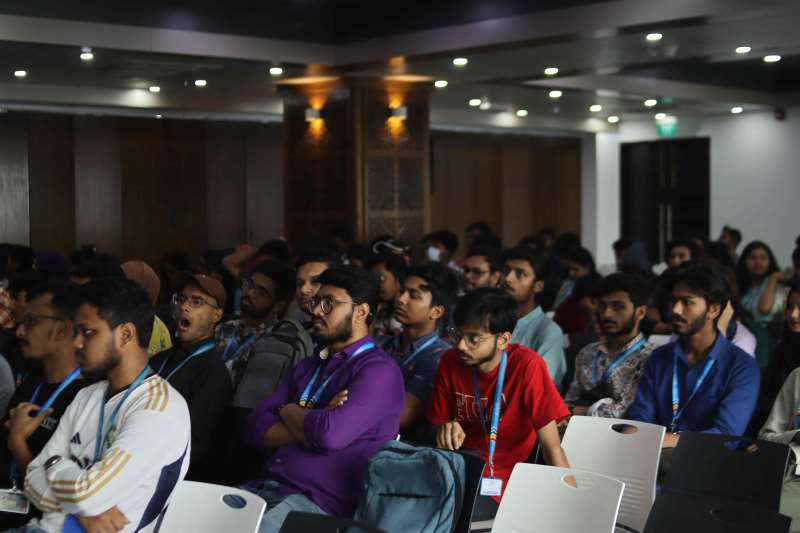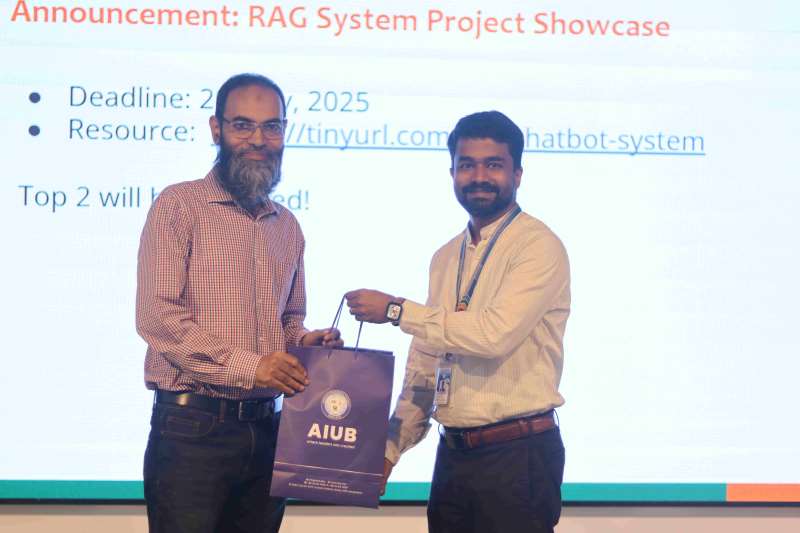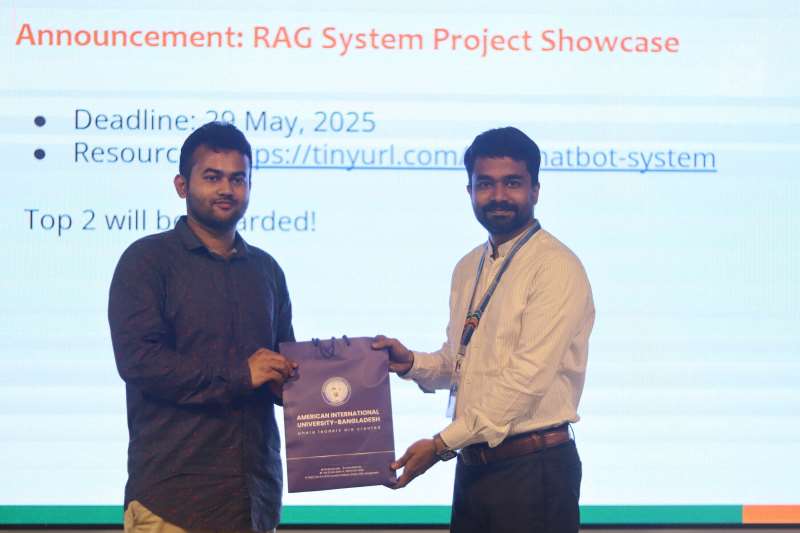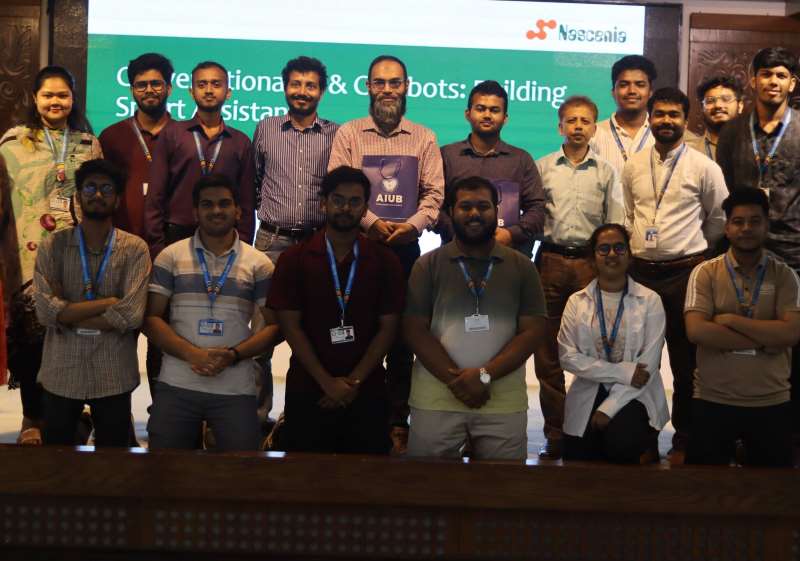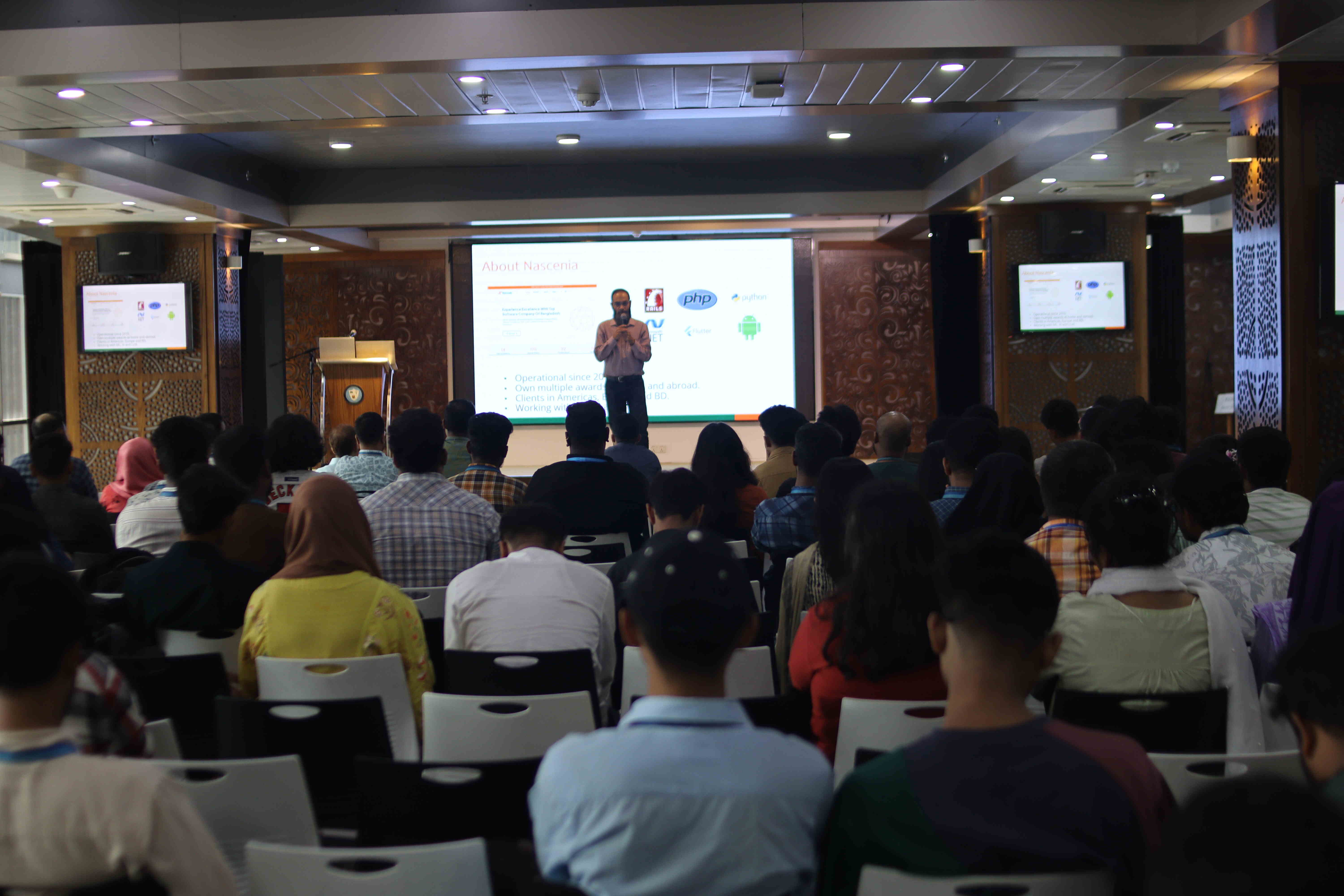On Tuesday, April 29, 2025, AIUB Computer Club, in collaboration with Nascenia, hosted a seminar titled “Conversational AI & Chatbots: Building Smart Assistants”, focusing on the evolving landscape of Artificial Intelligence (AI) and its practical applications. The session aimed to provide students with an in-depth understanding of how AI systems work, including technologies like Large Language Models (LLMs), semantic search engines, and recommendation systems. The event featured two insightful speakers: Sheikh Shaer Hassan, CEO of Nascenia, and S M Nahid Hasan, Software Engineer specializing in Machine Learning at Nascenia.
Dr. Md. Abdullah-Al-Jubair, Senior Assistant Professor and Director of the Faculty of Science and Technology, along with other esteemed faculty members, were also present at the seminar. Dr. Abdullah-Al-Jubair delivered an inspirational speech to the audience, encouraging students to embrace emerging technologies and explore the vast potential of Artificial Intelligence.
The seminar began with an introductory speech by Mr. Sheikh Shaer Hassan, who shared his professional journey and experience in the tech industry. He was then joined by Mr. S M Nahid Hasan, who took the lead in delivering a comprehensive presentation alongside Mr. Shaer.
Mr. Nahid initiated the technical discussion with the foundational question: “What is AI?”, followed by a chronological breakdown of its evolution—from traditional rule-based systems to modern deep learning paradigms. He emphasized how the introduction of transformers in 2017 laid the groundwork for the advanced AI models we see today.
The presentation included technical insights into tokenization, how LLMs function, and the detailed training process behind them. A key point addressed was the absence of LLMs developed in Bangladesh, primarily due to limitations in infrastructure and computational resources. Mr. Nahid discussed models such as LLaMA 1, 2, and 3, shedding light on the requirements for inference and the emergence of multimodal AI systems capable of processing diverse input types.
Several real-world applications were explored, including virtual assistants and recommendation systems. The speaker pointed out why tools like ChatGPT perform sub-optimally in Bangla, attributing the issue to limited training data. However, he suggested that open-source models and translation pipelines might overcome this barrier in the future.
The session also covered cutting-edge AI tools and concepts such as prompt engineering, API functions, agent-based systems, semantic search engines, and RAG (Retrieval-Augmented Generation) systems. Mr. Nahid emphasized that hallucination—a common issue with LLMs—can be mitigated with RAG systems, which were explained through a detailed pipeline. He also introduced structured data systems and agentic systems as emerging areas of research and application. A case study on conversational AI and chatbots was presented, followed by a live demo of a RAG-powered chatbot. Participants were invited to submit their own RAG ideas for a chance to win exciting prizes.
The event also included an engaging Q&A session, allowing participants to dive deeper into the topics discussed. Sharfuddin Mahmood, Assistant professor, Department of Computer Science and Special Assistant of OSA concluded the session by handing over gift hampers to the speakers and guests. The seminar ended with a group photo session, marking it as a successful and enriching event. Overall, the workshop provided valuable exposure to cutting-edge AI technologies and practical insights into how students can engage with the future of intelligent systems.

